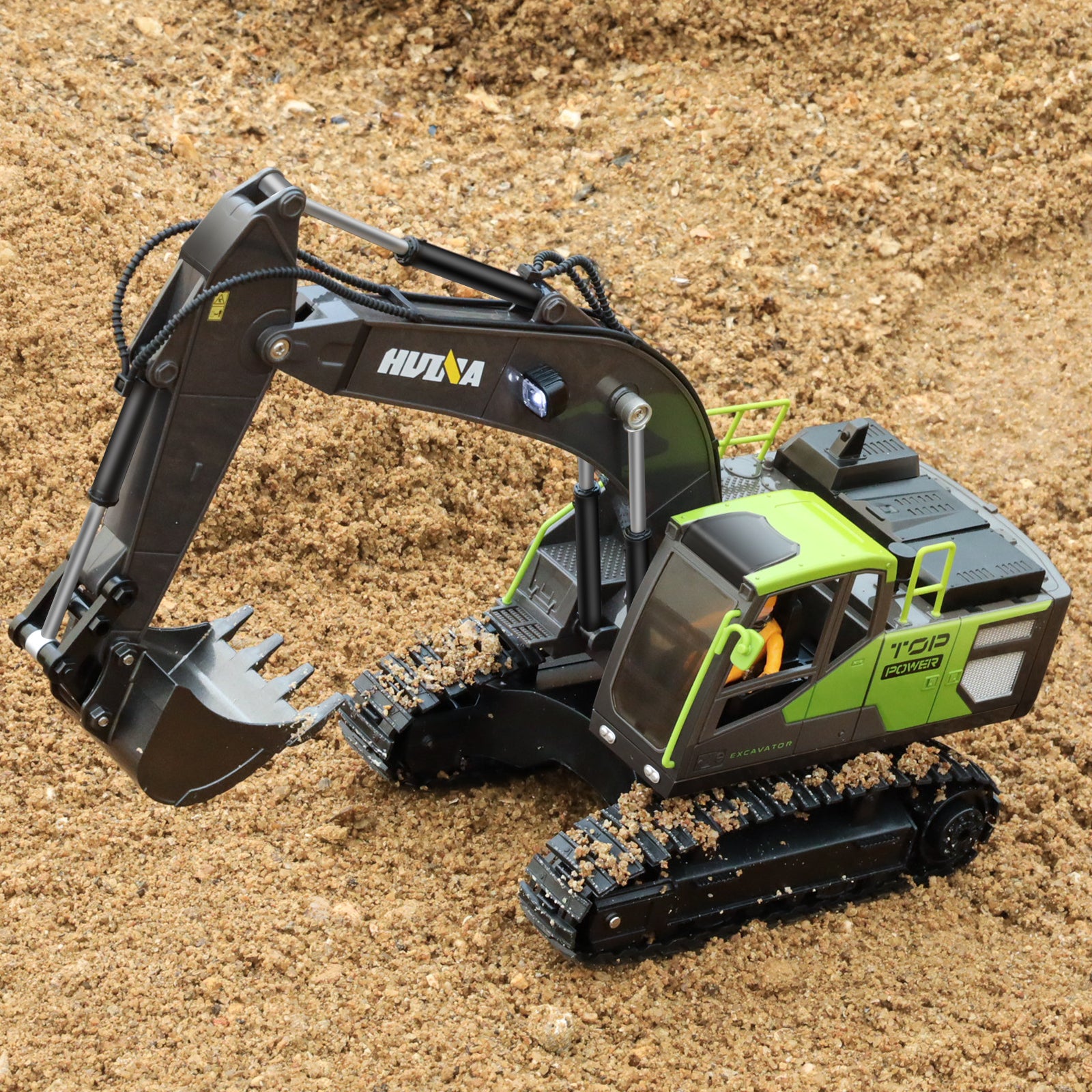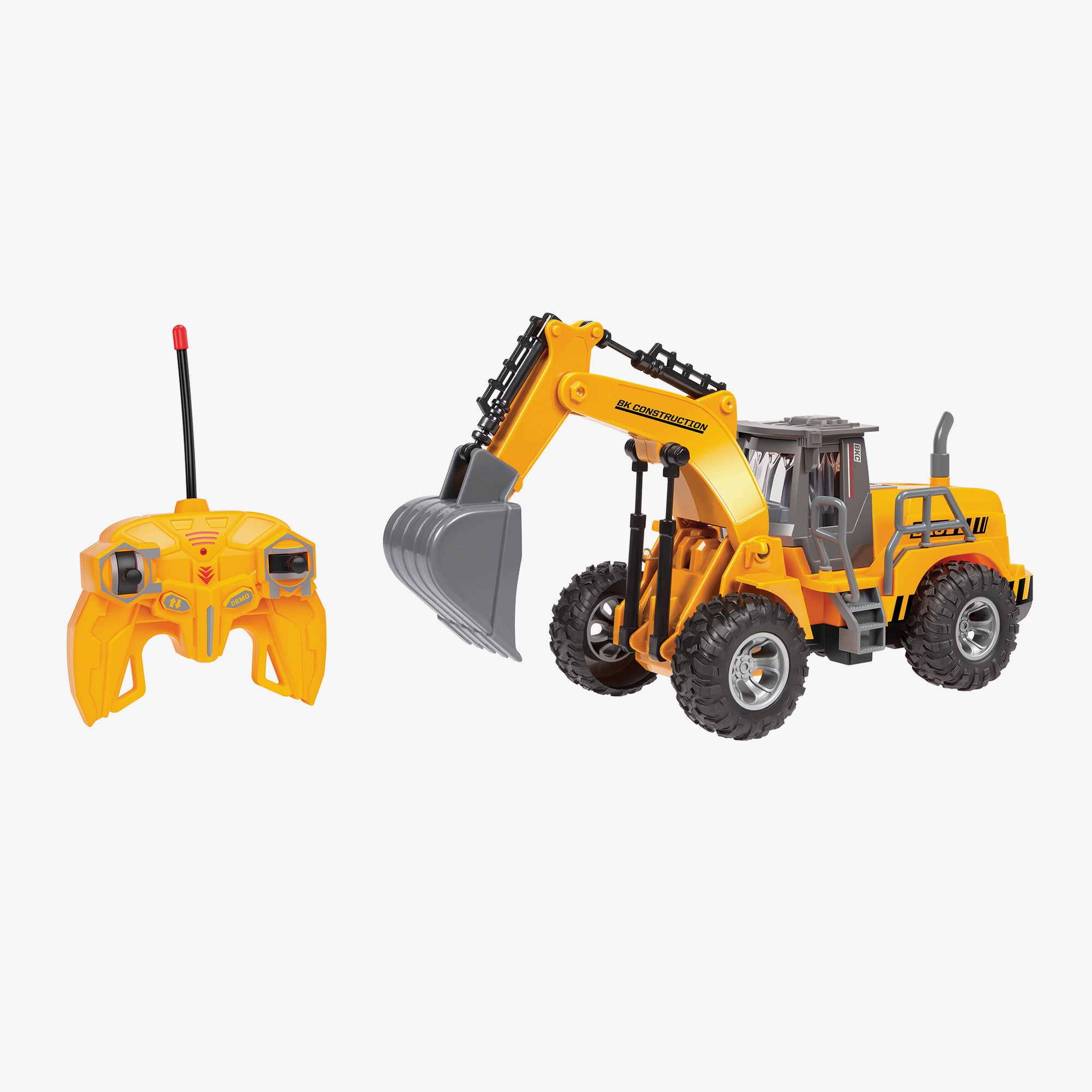Recognizing Just How Excavator Works and Its Influence On Effectiveness
Excavators play a vital function in building and construction and mining procedures, relying upon a complicated interplay of mechanical and hydraulic systems. Their capacity to carry out a range of tasks depends upon both their style and the modern technology incorporated within. Understanding these elements can significantly impact functional effectiveness and productivity. As improvements continue to improve the sector, one have to take into consideration just how these changes will affect future techniques and performance.
The Fundamentals of Excavator Mechanics

The Function of Hydraulic Systems in Excavators
At the heart of excavator operation lies the hydraulic system, which plays an essential function in powering the equipment's activities and features. This system utilizes pressurized hydraulic fluid to transfer power, enabling numerous activities such as excavating, swinging, and training. By harnessing the principles of hydraulics, excavators can carry out tasks with exceptional accuracy and pressure, enhancing overall functional efficiency.The hydraulic system is composed of crucial elements, including cylinders, pumps, and shutoffs, which collaborate to control the circulation and instructions of the fluid. When the operator engages the controls, the hydraulic fluid is guided to particular cylinders, equating the driver's commands right into physical activity. This system permits receptive and smooth activities, which are necessary in building and construction and excavation environments. double e volvo rc excavator. The performance of the hydraulic system straight influences the performance and convenience of the excavator, making it a vital element in modern excavation procedures
Trick Elements of an Excavator
Comprehending the key parts of an excavator is crucial for realizing how this powerful device operates. An excavator consists of several substantial elements, including the undercarriage, house, bucket, boom, and arm. The undercarriage provides security and flexibility, typically featuring wheels or tracks to navigate different terrains. The home includes the engine and hydraulic systems, enabling the operator to control motion and power the device. The boom prolongs from your house, enabling vertical reach, while the arm connects to the bucket, promoting digging and lifting operations.Additionally, the cab houses the driver, outfitted with controls for precise handling. Each of these components plays a vital role in the excavator's general functionality, adding to its performance and performance on construction sites. Comprehending these components helps in keeping and maximizing excavator efficiency, guaranteeing tasks are completed securely and effectively.
Accessory Flexibility and Its Advantages
Add-on versatility is an essential aspect of excavators, enabling operators to switch in between different devices tailored for details tasks. This adaptability not only boosts job performance yet also adds to cost-effectiveness by reducing the requirement for several machines. Understanding the various sorts of attachments offered can considerably affect the overall efficiency and capability of an excavator on task sites.
Sorts of Attachments
While excavators are mostly identified for their excavating abilities, their true versatility depends on the large variety of attachments readily available. These add-ons improve the excavator's functionality, enabling it to carry out different jobs beyond excavation. Typical accessories consist of buckets (for excavating and scooping), hydraulic thumbs (for realizing materials), and augers (for piercing openings) Grapples are made use of for relocating and handling particles, while rippers can damage up difficult surfaces. Other specialized add-ons, such as trenchers and rakes, allow excavators to adapt to particular task needs. This diversity not just enhances the machine's utility throughout different markets, consisting of building and construction, demolition, and landscape design, but also allows drivers to tailor their devices to meet details project demands effectively.
Increased Task Performance
Optimizing job effectiveness is a key advantage of utilizing different excavator add-ons. Various attachments enable an excavator to execute multiple tasks without requiring to switch over equipment, conserving valuable time and labor. Utilizing a hydraulic hammer can damage you could try here concrete while a pail add-on can dig deep into soil, allowing a seamless workflow. This adaptability lowers downtime related to equipment modifications and improves performance on-site. Additionally, specialized accessories improve precision in tasks such as grading or landscape design, bring about better outcomes. The ability to adapt to different task demands not just enhances operations however also minimizes the need for added equipment, making sure that jobs are completed quickly and efficiently. Generally, add-on adaptability considerably contributes to enhanced job performance in excavation job.
Cost-Effectiveness and Adaptability
Cost-effectiveness is a considerable advantage of making use of flexible excavator attachments. These add-ons permit a single excavator to perform numerous tasks, reducing the need for added equipment and labor - double e volvo rc excavator. By switching over in between containers, hammers, and grapples, operators can tackle numerous jobs, from digging to demolition, thereby making the most of equipment use. This adaptability not just decreases operational prices however also decreases downtime connected with changing devices. Additionally, the capacity to personalize excavators with specialized accessories improves productivity, as they can effectively take care of diverse jobs according to job needs. To end, the mix of cost-effectiveness and convenience in excavator accessories contributes to enhanced functional efficiency and resource allowance in building and excavation jobs

Advanced Modern Technology in Modern Excavators
Modern excavators are increasingly equipped with sophisticated innovation that changes excavation procedures. Automation streamlines operations, while improved fuel effectiveness minimizes operational expenses. Additionally, wise control systems enhance precision and security, noting a considerable evolution in excavation devices.
Automation in Excavation Processes
As excavation modern technology evolves, automation has actually emerged as an essential part in enhancing effectiveness and accuracy on task websites. Modern excavators are furnished with innovative automated systems that promote jobs such as grading, digging, and trenching with minimal driver intervention. These systems use sensing units, GPS, and device learning algorithms to guarantee precise positioning and deepness control, considerably decreasing the margin for error. In addition, automation permits operators to concentrate on critical decision-making instead of hands-on controls, leading to enhanced productivity in general. Such advancements not only simplify process however also improve safety and security by lessening human mistake in complex procedures. The assimilation of automation in excavation processes represents a substantial improvement in construction technology, driving the industry towards higher performance and performance.
Boosted Fuel Efficiency
Innovations in innovation have actually likewise led to considerable enhancements in fuel efficiency for contemporary excavators. Modern devices are go to this web-site geared up with sophisticated engines that enhance power result while minimizing fuel consumption. These engines make use of ingenious combustion technologies, such as turbocharging and direct fuel injection, to boost efficiency and performance. In addition, lightweight materials in building reduce general weight, enabling much less energy expenditure throughout operation. The introduction of variable speed controls enables operators to readjust engine efficiency according to details tasks, additionally decreasing fuel use. Consequently, these improvements not just reduced functional expenses but additionally add to environmental sustainability by minimizing emissions. Overall, boosted fuel performance in excavators is an essential growth that boosts productivity and financial stability in the building industry.
Smart Control Equipment
While drivers navigate significantly complicated task websites, wise control systems in excavators have emerged as crucial devices for improving effectiveness and precision. These innovative innovations utilize algorithms and sensors to keep an eye on different specifications such as tons weight, surface problems, and functional efficiency. By instantly readjusting hydraulic features, clever systems enhance device efficiency, resulting in enhanced efficiency and lowered endure parts. In addition, drivers profit from intuitive interfaces that provide real-time responses and diagnostics, enabling notified decision-making. This combination of innovation not only simplifies procedures however likewise lessens human error, adding to more secure job settings. As try this web-site the building industry remains to evolve, smart control systems will certainly play an essential duty fit the future of excavator efficiency and performance.
Enhancing Operational Performance With Excavators
Excavators play an essential role in improving operational efficiency throughout numerous construction and excavation jobs. Their flexibility enables numerous tasks, including digging, lifting, and product handling, which enhances process and decreases the requirement for added tools. With effective hydraulic systems, excavators can execute sturdy jobs with precision, considerably decreasing the moment required to complete projects. The integration of sophisticated innovation, such as GPS and automated controls, even more maximizes their operation, enabling operators to attain higher accuracy and reduce product waste. Furthermore, modern excavators are made to take in less gas and reduce emissions, adding to both cost financial savings and environmental sustainability. By making use of excavators successfully, building and construction teams can boost productivity, fulfill job target dates, and enhance total site management. This multifunctionality and effectiveness make excavators vital tools in the modern construction landscape.
The Future of Excavators in Construction and Mining Industries
As the construction and mining industries advance, the future of excavators is poised for significant makeover driven by technological innovation and transforming functional needs. Developments in automation and expert system are improving excavator capacities, enabling for improved precision and effectiveness in procedures. Autonomous excavators are arising, lowering the need for human intervention and reducing the threat of accidents.Moreover, the integration of telematics and IoT modern technology allows real-time surveillance of device efficiency and anticipating maintenance, optimizing uptime. Environmentally friendly styles, consisting of hybrid and electric designs, are getting traction, straightening with sustainability goals within the industry.Additionally, using advanced materials and lighter layouts boosts gas effectiveness while keeping efficiency standards. As these fads progress, excavators will play a vital duty in meeting the boosting demands for efficiency and safety and security in building and construction and mining, inevitably transforming functional landscapes.
Frequently Asked Questions
Just How Do Weather Condition Problems Influence Excavator Efficiency?

Climate condition greatly affect excavator performance, as rain and mud can hinder grip and stability, while extreme temperature levels might affect hydraulic systems. Operators has to adjust to these variables to assure ideal capability and safety during operations.
What Safety And Security Steps Should Operators Follow While Using Excavators?
Precaution for excavator drivers include putting on appropriate individual safety equipment, carrying out pre-operation inspections, ensuring proper interaction with ground workers, preserving a secure range from above threats, and adhering to well established functional protocols to stop crashes.
Just How Typically Should Excavators Be Preserved for Optimum Performance?
Excavators should be maintained frequently to ensure peak efficiency, generally every 250 operating hours or as specified by the supplier. Regular checks enhance integrity, protect against unforeseen malfunctions, and extend the life-span of the equipment.
What Is the Typical Life Expectancy of an Excavator?
The ordinary life expectancy of an excavator typically ranges from 10,000 to 15,000 hours of operation. Variables affecting long life include upkeep practices, operating problems, and the quality of the maker itself, influencing total efficiency and performance.

Can Excavators Operate Uneven Terrain Efficiently?
Excavators can operate successfully on unequal terrain due to their articulated designs and adjustable tracks. These attributes enable them to preserve security and grip, making it possible for reliable operation in challenging atmospheres typically run into in building and landscape design projects. Each of these components plays a crucial role in the excavator's total capability, adding to its performance and efficiency on building and construction websites. Maximizing job efficiency is a primary advantage of making use of numerous excavator attachments. While drivers navigate significantly complex job sites, clever control systems in excavators have emerged as vital tools for enhancing performance and accuracy. Excavators play a necessary function in boosting operational effectiveness throughout different building and excavation jobs. Developments in automation and man-made intelligence are reshaping excavator capacities, enabling for improved precision and efficiency in procedures.